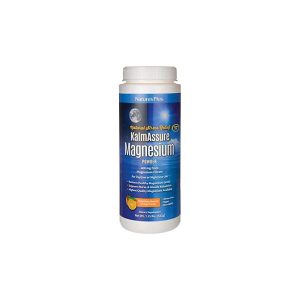We use cookies to make your experience better. We and our advertising partners collect data and use cookies for ad personalization and measurement. To comply with the new e-Privacy directive, we need to ask for your consent to set the cookies.Learn how we collect and use data Learn more.
Free Delivery on orders over £50 Free Click & Collect
Best Magnesium Supplement For Sleep UK
Quality sleep is the cornerstone of a healthy lifestyle. In our fast-paced lives, the importance of a good night's sleep cannot be overstated. From promoting mental clarity to supporting physical well-being, sleep plays a vital role in overall health. If you find yourself tossing and turning at night, searching for the best magnesium supplement might be the key to unlocking a restful slumber.
Understanding Magnesium and Its Role in Sleep
Magnesium, an essential mineral, is involved in numerous bodily functions, including muscle and nerve function, blood glucose control, and energy production. However, its relevance to sleep goes beyond these functions. Magnesium plays a crucial role in regulating neurotransmitters that impact sleep quality, making it a popular choice for those seeking natural sleep aids.
Different Forms of Magnesium
Before delving into the specifics of magnesium for sleep, it's essential to understand the different forms available. From magnesium glycinate to magnesium citrate, each variant has its unique characteristics and benefits.
Magnesium Glycinate
Among the various forms, magnesium glycinate stands out as a sleep champion. Known for its high bioavailability and minimal laxative effects, magnesium glycinate is gentle on the stomach and ideal for those with sensitive digestive systems.
Magnesium Citrate
If you're looking for a magnesium supplement that your body can absorb rapidly, magnesium citrate is worth considering. While it may cause a laxative effect in higher doses, its quick absorption can make it a suitable choice for individuals with specific sleep concerns.
Magnesium Threonate
Magnesium threonate is unique for its ability to cross the blood-brain barrier. This characteristic makes it particularly effective in supporting cognitive function and, consequently, improving sleep quality.
Magnesium Malate
Not only does magnesium malate contribute to better sleep, but it also supports energy production. This dual benefit makes it a popular choice for those looking to enhance both their daytime vitality and nighttime rest.
Best 3 Magnesium Supplements To Help With Sleep
Solgar Magnesium Citrate
Solgar Magnesium Citrate stands as a worldwide best-selling magnesium product and is as a reliable choice for individuals seeking to enhance their magnesium levels efficiently.
Nature's Plus KalmAssure Magnesium Powder
Nature's Plus presents KalmAssure Magnesium Powder, a potent supplement delivering 400 mg of natural, calming magnesium in a highly bioavailable citrate form. This supplements helps in promoting healthy relaxation.
Pharma Nord Bio-Magnesium
Pharma Nord Bio-Magnesium emerges as a reliable choice for those seeking a high-quality magnesium supplement. With a focus on comprehensive health support and adherence to pharmaceutical standards, this supplement stands out as a valuable addition to daily nutrition for overall well-being.
Other Ways To Help With Sleep
Achieving restful sleep extends beyond supplementation. Here are some recommendations to enhance sleep quality naturally:
- Establish a Consistent Sleep Schedule: Maintain a regular sleep routine by going to bed and waking up at the same time every day, even on weekends. This helps regulate your body's internal clock.
- Create a Relaxing Bedtime Ritual: Engage in calming activities before bedtime, such as reading a book, practicing gentle yoga, or taking a warm bath. This signals to your body that it's time to wind down.
- Limit Screen Time Before Bed: Reduce exposure to electronic devices with screens at least an hour before bedtime. The blue light emitted can interfere with the production of melatonin, the sleep hormone.
- Optimize Your Sleep Environment: Ensure your bedroom is conducive to sleep. Keep the room cool, dark, and quiet. Invest in a comfortable mattress and pillows to create an inviting sleep haven.
- Mindful Breathing and Relaxation Techniques: Practice deep breathing or meditation to relax your mind and body. Techniques like progressive muscle relaxation can help release tension, promoting a more peaceful sleep.
- Watch Your Diet: Be mindful of your food and drink choices, especially in the evening. Avoid heavy meals close to bedtime and limit caffeine and nicotine intake, as these can disrupt sleep.
- Regular Exercise: Engage in regular physical activity, but aim to complete your workout a few hours before bedtime. Exercise promotes better sleep, but intense activities close to bedtime may have the opposite effect.
Conclusion
In the quest for better sleep, magnesium emerges as a natural and effective ally. Remember, quality sleep is a personalized journey, and magnesium might just be the missing piece to your restful nights.
At Nutrition Now, we only stock the best supplements and fitness nutrition in the UK and Ireland including magnesiums supplements to help with sleep. Make sure to check out our complete range of magnesium supplements in our online store!
FAQs:
- Can I take magnesium supplements every day? While magnesium is generally safe for daily use, it's advisable to consult with a healthcare professional to determine the appropriate dosage for your specific needs.
- Are there any side effects of magnesium supplements? In some cases, magnesium supplements may cause mild gastrointestinal discomfort or a laxative effect. Adjusting the dosage can help minimize these effects.
- Can magnesium supplements help with insomnia? Magnesium has been linked to improved sleep quality, but individual responses vary. It's recommended to incorporate magnesium into a holistic approach to better sleep.
- What's the best time to take magnesium for sleep? Taking magnesium supplements about an hour before bedtime is commonly recommended, allowing for optimal absorption and potential sleep benefits.
- Is it safe to combine magnesium with other sleep aids? Before combining magnesium with other sleep aids, it's crucial to consult with a healthcare professional to ensure compatibility and avoid potential interactions.





